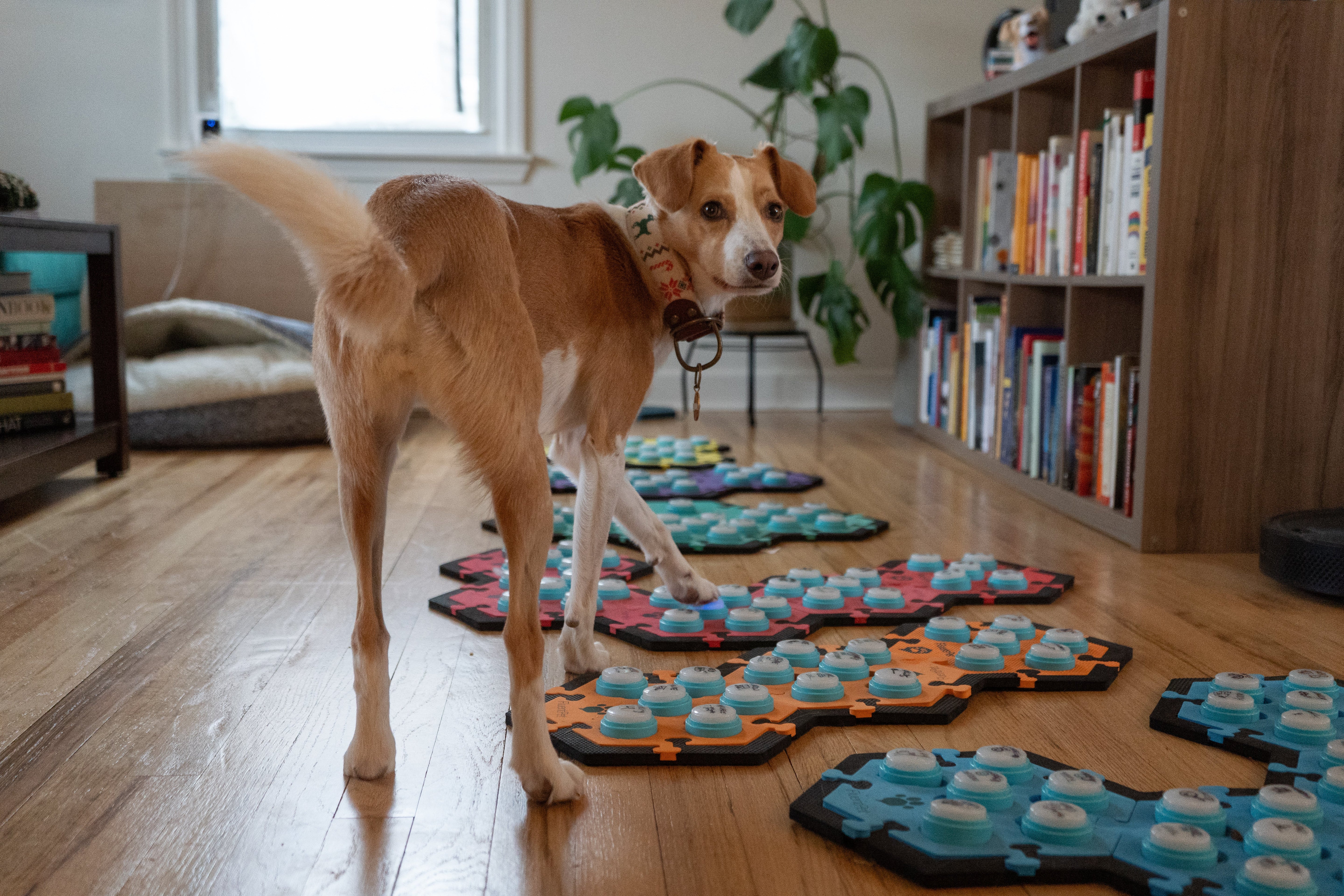I was somewhat of a serious pianist for most of my girlhood. But, and much to my dismay, these days I rarely get the chance to play. Among the many things I miss about sitting down in front of a set of keys (one that isn’t attached to a computer) is performing duets with a dog. When I was a teenager, Beau, one of our canine family members, loved making music with me. As soon as I started playing, he would lay down beneath the baby grand. Beau was an excellent vocalist, master of matching pitch, and most days he would set to “singing” along with whatever I played, be it Bach or Billy Joel. I’ll never forget his quiet, mournful howl when I would play his “favorite” piece, the moody and romantic “Musetta’s Waltz” from Pucini’s La Boheme. But there were also times when he would saunter over and settle himself quietly beside the foot pedals, content, it seemed, to simply feel the notes vibrate through the wooden floorboards.
According to Dogs, Mozart is a Snooze
We know there are reasons a person might choose to blast Queen’s “We Are The Champions” before a big game, while preferring a lullaby at bedtime. It’s because, for humans, making and listening to music reflects and influences our mood, emotions, and state of mind. But in recent years, cognitive scientists and musicologists have been exploring not just how people process music, but also how other animals respond to various sounds, styles, and genres.
As it turns out, even though our furry companions do not typically play or create music in the traditional sense (though anyone who has heard a band of dogs howling together might argue that point), they are affected by different combinations of rhythms, tones, and pitches, much like people (Alworth and Buerkle 2013).
Over the years, researchers have uncovered several connections between animals’ mental welfare and psychological and physiological states and different types of music. In one study involving kennelled dogs, investigators found that listening to classical music caused the dogs to spend more time sleeping and less time vocalizing, while heavy metal music increased signs of nervousness (Kogan, Schoenfeld-Tacher, and Simon 2012), results that suggested classical music may have a calming effect for dogs in stressful situations. A similar study found that classical music may indeed reduce environmental stress by influencing changes in heart rate for dogs (Bowman et al. 2015), and another added soft rock and reggae to the list of genres associated with more relaxed behaviors (Bowman et al. 2017).
Mew-sic for Cats
While these and many other investigations have shown how music can be used as a form of environmental enrichment (or, conversely, induce stress or negative behavioral effects), one study in domestic cats also noted the importance of “species appropriate music” when it comes to producing listening benefits. Here, researchers found that the music that had the most effect on cats’ responses were compositions that were produced in the same frequency range and with similar tempos to sounds cats naturally use when communicating with each other (Snowdon, Teie, and Savage 2015).
Music for Learning?
Beyond the potential calming benefits of certain genres of music, studies in laboratory animal welfare have taught us that exposure to music can also influence how animals’ brains develop, and ultimately how they learn. Results in this line of inquiry indicate that exposing young rat pups or those in gestation to classical and “comfortable” music enhanced their auditory signal detection and spatial learning abilities (Alworth and Buerkle 2013).
With this knowledge at hand, other researchers have tried to determine how they might use sound and music to help improve learning outcomes for future police working dogs (Alves et al. 2018). For me, in thinking back to those days with Beau at the piano, fascinating work like this begs the question of if and how we might incorporate music into everyday learning with our canine and feline companions.
References:
Bibliography:
Courtney Sexton is a Postdoctoral research scientist at the Virginia-Maryland College of Veterinary Medicine and has a PhD in Evolutionary Anthropology and Comparative Animal Behavior from The George Washington University.




Leave a comment
This site is protected by hCaptcha and the hCaptcha Privacy Policy and Terms of Service apply.